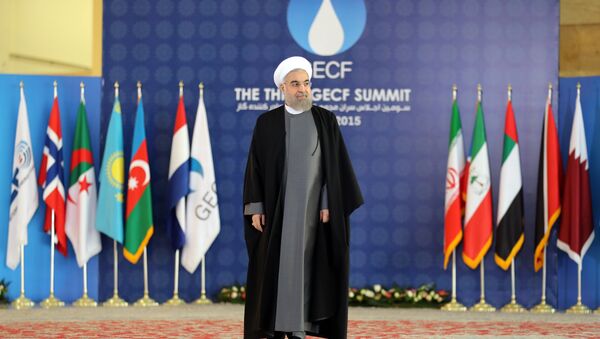WASHINGTON (Sputnik) — On Monday, Iranian President Hassan Rouhani said Tehran was ready to increase the production and export of energy resources and invited the 12 member nations of the Gas Exporting Countries Forum (GECF) to take part.
The 12 member countries of the GECF, which include Russia, Venezuela, Nigeria and the United Arab Emirates, account for a combined two-thirds of the world’s proven natural gas reserves.
"Surely potential investors/partners in Iranian energy development will be cautious but not allergic to Rouhani's overtures," Ball State University Professor of Economics Cecil Bohanon told Sputnik on Monday.
Capitalist investors are an interesting breed, Bohanon added, because they are willing to pursue trustworthy opportunities, like those in Iran, regardless of geopolitical circumstances.
"They [investors] have little sentiment for political ideology but absolutely require trust to commit," he noted.
Brown University Professor Jeff Colgan, author of "Petro-Aggression: When Oil Causes War," told Sputnik that Rouhani’s comments could encourage foreign companies to invest in energy markets, although they need to understand that the projects will take years to come to fruition.
"Foreign companies deciding whether to invest will have to balance positive signals from the current government [in Tehran] against the long historical pattern of Iranian antipathy to foreign investors dating back to the 1979 revolution," Colgan claimed.
Iran reached a landmark deal with the six world powers in July 2015, easing anti-Iran sanctions in exchange for Tehran’s agreement to reduce its uranium stockpiles and significantly cut centrifuges over the next decade and a half.
In September, National Iranian Oil Company head Ali Kardor said he expected Iran’s oil exports to increase by 500,000 barrels a day by late November or December. Western sanctions were estimated to have cut Iran’s crude oil export revenue by almost half since 2011.


